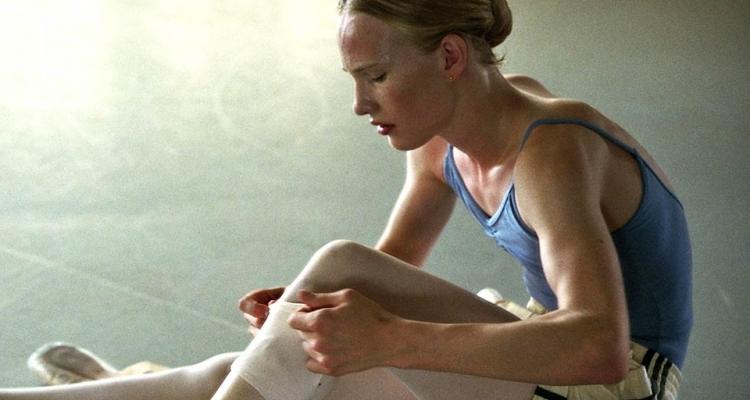From its very first moments, the beautifully controlled and artful “Girl” – the feature debut of young Belgian director Lukas Dhont – grips and takes hold. This deeply emphatic portrayal of a trans teen has an expressive camera that observes and listens, rather than forces you to succumb to emotions. The trajectory of the story’s protagonist, Lara, who is determined to become a ballet dancer despite feeling trapped in a body she doesn’t recognize, sounds a little exploitative on paper, but the end result is quite the opposite. Sensitively rendered cinema with a capital C, “Girl” features a lovely naturalism and an attention to detail so delicately constructed characters feel like full flesh and blood.
READ MORE: The 2018 Cannes Film Festival: The 20 Most Anticipated Movies
Lara (Victor Polster) is 15 years old, with blond hair and beautiful blue eyes. She moves from Belgium to Sweden with her dad, Mathias (Arieh Worthalter), and her younger brother Milo (Oliver Bodart), just 6 years of age. The absence of a maternal figure is filled by her supportive father who helps every step of the way along her difficult path. Lara aspires to become a ballet dancer but struggles to keep up with a body in a state of constant change, using hormonal therapy, prescribed by her doctor, to ease into the transition from boy to girl.
The aforementioned transition is scheduled and monitored in biweekly doctor visits. Contrary to typical stories of trans characters, especially the ones told in the U.S., the culture around Lara in this drama is accepting. Some characters aren’t exactly subtle about it, but in general, the Swedish community in the film is affectionately welcoming. Problems mostly arise through the mental state of Lara’s slow metamorphosis, internalizing everything to the point of losing her breath and possibly cracking. Her aspirations of becoming a ballerina and the sudden awakening of her libido create further havoc with the framework of already-existing teenage angst.
With empathy and tenderness, Dhont takes us through Lara’s bittersweet awakening and the film is illuminated by her tenacity, her courage, and her grace. Yet, “Girl” is very much a film about the struggle to gain agency over one’s body. The long and beautifully rendered single take dance sequences are exhilarating, as Lara regains possession of body, mind, and soul, taming and bending it in an expressive dance that’s half battle, half catharsis. Polster’s disturbing physical performance recalls Natalie Portman‘s grueling turn in “Black Swan.” There’s a punishing realism in watching a character such as Lara pummel herself at every turn to achieve exceptionalism.
Her father, on the other end, is sublimely affectionate; an understanding and attentive parental figure that is unquestionably invested in his daughter, despite working graveyard shifts as a taxi driver. The father-daughter scenes are profoundly tender, illustrating just how far parenting can go to help a child in dire need of acceptance. However, Dhont never forces the emotions on us. Tenderness surrounds Lara in the form of friends, family, and doctors that truly, deeply care for her. But eventually, self-perpetrated violence and suffering start to take shape in her like a darkening cloud.
The term “coming of age” doesn’t really apply to “Girl.” Dhont’s film is more focused on self-discovery despite all the restrictions that may try and suffocate the soul. Dhont makes the weight of Lara’s sacrifices count at every turn. His main protagonist is such a prisoner of her own body, the movie almost takes on body-horror dimensions. Powerfully portrayed by the breakout newcomer Polster, Lara’s humanism pours out of the performance and then is exquisitely captured by this 25-year-old Belgian filmmaker; a young artist of considerable talent.
If the shocking finale might take some viewers aback, even make them cringe in discomfort, it still feels very much part of the grander picture that Dhont is trying to tell us. Inspired by his Belgian countrymen, the Dardenne brothers, Dhont delivers a beautiful portrait of humanism and authenticity with an emotional restraint that is damn-near impressive for such a young filmmaker. With enlivening performances and thoughtful filmmaking, “Girl” has the power to not just change lives but reinvigorate your belief in cinema. [A-]
Follow along with all our 2018 Cannes Film Festival coverage here.

